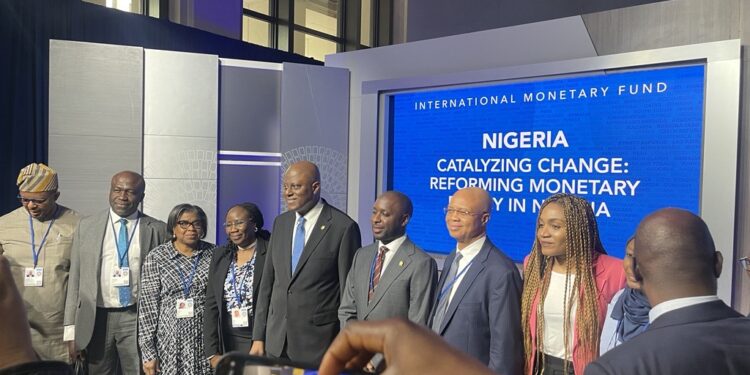Yemi Cardoso, the Governor of the Central Bank of Nigeria (CBN), has responded to concerns regarding the dwindling external reserves, asserting that the decline is not a result of the apex bank’s efforts to defend the naira.
Cardoso clarified that the decrease in foreign exchange (FX) reserves primarily stems from debt repayments and standard financial obligations rather than attempts to shore up the naira.
He emphasized that there are no intentions to defend the currency using external reserves, citing the apex bank’s already implemented willing buyer, willing seller policy.
Impact of Debt Repayments on Reserves
Governor Cardoso elucidated that Nigeria’s significant reduction in external reserves is largely driven by its need to meet its debt obligations, a routine practice crucial for upholding national credibility in the global financial landscape.
He stated, “What you see concerning the shifts in our reserves is the shift you will find in any country’s reserve situation where, for example, debts are due and certain payments need to be made.”
Nigeria faces substantial external debt service requirements, including payments on Eurobonds and other international financial obligations, necessitating sizable amounts of foreign currency and further depleting the reserves.
Willing Buyer, Willing Seller Policy
Reiterating the CBN’s commitment to a market-driven approach, Governor Cardoso underscored the bank’s advocacy for currency prices to be determined by willing buyers and sellers, without direct intervention.
He emphasized, “Basically, what we are encouraging for the market is willing-buyer willing-seller price discovery.”
Interventions to BDCs Minimal
Cardoso addressed the minimal interventions in the bureau de change (BDC) segment, describing them as targeted efforts to ensure effective integration into the broader market.
He envisioned a scenario where the central bank rarely intervenes in the currency market, except under exceptional circumstances.
He stated, “But in terms of intervention, that is not our intention at all.”
Fresh Influx of Funds
Additionally, Cardoso revealed an influx of approximately $600 million into the reserve account over the past two days, stressing that these movements were routine and not aimed at defending the naira.
He emphasized the importance of sufficient liquidity in the market, asserting, “As long as we have a vibrant currency market, why do we need to intervene? We don’t need to.”
Insights on Reserves Decline
Nigeria’s foreign exchange (FX) reserves recently experienced a significant downturn, dropping by approximately $2.16 billion in 29 days.
Current figures from the CBN reveal that the FX reserves stand at $32.29 billion as of April 15, 2024, a notable decline from the $34.45 billion recorded on March 18, 2024.
The depletion of FX reserves raises concerns about the country’s balance of payments and its ability to meet international obligations, potentially impacting investor confidence and borrowing costs.
The International Monetary Fund (IMF) projects a challenging period for Nigeria’s financial account through 2024–25, with hopes for a recovery to $38 billion by 2028.


